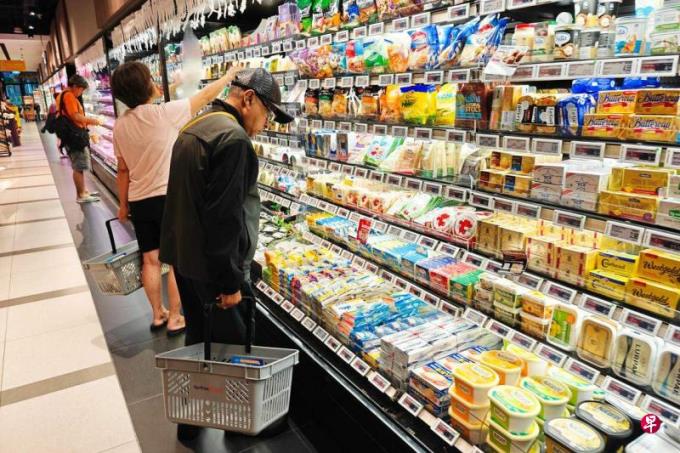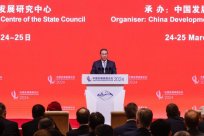
The rise of prices in Singapore has slowed down in February after January, and the increase is higher than market expectations.Although this is only a phenomenon caused by the seasons of the New Year of the lunar calendar. It is not necessary to overwhelm the high inflation rate in the previous two years, but it is difficult for Chinese people to worry about the continuous rise in prices and living expenses.
The Singapore Financial Administration and the Ministry of Trade and Industry released the latest consumer price index on Monday (March 25). The core inflation rate in Singapore in February was 3.6 %, which was higher than 3.1 % in January.As the Lunar New Year fell in February this year, the price of food and air tickets rose to expect, and the HKMA also issued a warning on this possibility before, but the increase was more surprising than expected.
Although some impacts related to the Lunar New Year will end after all, one of the key factors in the future and the pressure of wages caused by tight labor markets will not disappear in the short term.According to the 2023 vacancies released by the Ministry of Manpower on Monday, the local labor market is still in the situation of "finding people". Compared with the previous year, in order to fill the vacancies, employers are willing to pay higher salary.Taking software, web pages, and multimedia developers as an example, the salary that employers are willing to pay have increased from 4,200 yuan in the previous year to 5,000 yuan last year.The data of the labor market report in the fourth quarter of 2023 announced two weeks ago also shows that the total number of jobs has reversed the trend of six quarters. At the end of December last year, the proportion of jobs and job seekers was 1.74 to 1, that is, the proportion of job seekers was 1.74 to 1, that is,Each job seeker has nearly two jobs to choose from.These all show that the tension of the human market will not be relieved for a while and a half.
While facing the pressure of salary, companies are also facing rising business costs. Electricity fees increased due to energy prices and carbon taxes. The water costs will be adjusted by 7%from next month.It may continue to be passed on to consumers, and the inflation rate will not fall back so soon.What is more worrying is the impact of inflation on low -income families. They use most of their income for basic needs such as food, hydropower and transportation.The inflation data in February also highlighted the more severe pressure they faced -excluding the core inflation rate of private transportation and accommodation costs, which is higher than the overall inflation rate of 3.4 %, which means that inflation mainly comes from necessities of life.
In order to help Chinese people cope with rising living expenses, the government announced the strengthening of the edition of the consciousness and assistance facilities in the 2024 fiscal budget, including the distribution of additional 600 yuan community development directors, neighboring shopping vouchers, additional consumption tax subsidy coupons, 200 200, 200Special subsidies for living expenses from yuan to 400 yuan.These aids can temporarily relieve the pressure of low -income families, but they are not long -term. After all, they still have to find practical methods to increase their income.
The government has introduced many policies to help increase the income of low salary employees. For example, through a gradual salary model and increasing the local salary threshold, their actual revenue will increase.However, if productivity does not accompany the increase in wage growth, it will be unsustainable.The best way to cope with rising living expenses is to promote economic growth, improve the productivity of enterprises and employees, and ensure that wages can be caught up with inflation.
Economist expects retail, catering, transportation and leisure consumption driven by Tayllers concerts, which may make the inflation rate in March higher, and everyone is not too surprised.Inflation is not a bad thing, but what level of inflation is healthy, and there is no magic figure. It must be considered at the same time to consider the growth of GDP and income growth.Singapore's inflation this year is still facing upward risks. The El Nino phenomenon and geopolitical tension have caused tight food and commodity supply. The inflation promoted by supply may increase in the next few quarters.Although the strong Xinyuan exchange rate can offset the rise in import prices, domestic cost issues still exist.If the continuous tension of the human market exceeds expectations, the inflation rate may not come down.Of course, if the global economy is unexpectedly soft, it may help relieve costs and price pressure, but this is not the situation we want to see.




